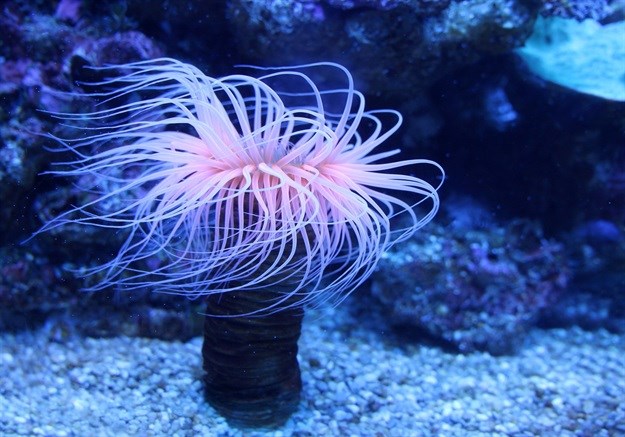
Top stories





Energy & MiningGlencore's Astron Energy gears up with new tanker amidst Sars dispute
Wendell Roelf 12 hours

More news

















Logistics & Transport
Uganda plans new rail link to Tanzania for mineral export boost











Coral reefs carry an annual global economic value of $375bn per year because they provide shelter for fish and marine life, protect shorelines and draw tourism to coastal areas.
But climate change, pollution, storms, bleaching and disease are endangering reefs worldwide, and up to 90% are in danger of dying off by mid-century, scientists have warned.
The study in the journal Science Advances looked at a kind of cool-water coral species known as tabletop corals (Acropora hyacinthus) in the South Pacific's Cook Islands.
Some of these corals have genetic variants that make them naturally able to tolerate heat and rising temperatures.
But researchers discovered that their capacity is limited.
"These corals aren't going to adapt at an unlimited rate," said lead author Rachael Bay, a postdoctoral scholar at the University of California, Davis.
"Keeping these reefs around requires curbing emissions."
The study relied on computer models that simulated corals' ability to survive under four different greenhouse gas concentration levels - or Representative Concentration Pathways (RCPs) - put out by the UN Intergovernmental Panel for Climate Change.
If little to nothing is done to curb carbon emissions in the next century and temperatures rise to 3.7 degrees Celsius or more, tabletop corals will die off and risk going extinct, the study found.
"Under more severe scenarios, RCP6.0 and RCP8.5, adaptation was not rapid enough to prevent extinction," it said.
Under the other two more mild scenarios, which foresee that warming either does not exceed two degrees Celsius by 2100, or that emissions increase for a few decades but then decline by 2040, researchers found the coral would likely adapt and survive.
"Many existing coral populations have a bank of adaptations that has been evolving for a long time," said co-author Steve Palumbi from Stanford University.
"Those existing adaptations are an asset for them to survive longer and for us humans to benefit longer."
More research is needed to determine how other coral species would react to various warming scenarios.
Source: AFP

For more than two decades, I-Net Bridge has been one of South Africa’s preferred electronic providers of innovative solutions, data of the highest calibre, reliable platforms and excellent supporting systems. Our products include workstations, web applications and data feeds packaged with in-depth news and powerful analytical tools empowering clients to make meaningful decisions.
We pride ourselves on our wide variety of in-house skills, encompassing multiple platforms and applications. These skills enable us to not only function as a first class facility, but also design, implement and support all our client needs at a level that confirms I-Net Bridge a leader in its field.
Go to: http://www.inet.co.za